How can you verify if Magento can reach and utilize the benefits of RabbitMQ?
This tutorial will help you to modify attributes of a product using Magento's async API and bulk API.
Magento settings #
We used the following settings in app/etc/env.php.
//...
'queue' => [
'consumers_wait_for_messages' => 0,
'amqp' => [
'host' => 'localhost',
'port' => '5672',
'user' => 'magento',
'password' => 'my-secret',
'virtualhost' => '/',
'ssl' => ''
]
],
'cron_consumers_runner' => [
'cron_run' => true,
'max_messages' => 10000,
'consumers' => [
]
],
//...
The consumers_wait_for_messages setting will command Magento to run the AMQP consumer’s in every minute alongside the default Magento Cron, but the consumers will instantly stop after they finished consuming all messages. You can read more about this setting here: Magento DevDocs - Configure consumer behavior.
Before we begin #
Create a test product #
On the Magento Admin create a test product.
- Catalog → Products → New Product
- Fill in the required attributes.
- Click on Save.
For our test product, we set the product’s SKU to test.
We are going to use this in this article.
Get your Admin token #
- Open the Magento Swagger UI. The URL should be something similar to this.
https://my-magento-shop.com/swagger
- Authenticate using twoFactorAuthGoogleAuthenticateV1 endpoint.
- Save the Bearer token.
1 - Rename the product using Magento’s async API #
Based on catalogProductRepositoryV1 endpoint insert the /async path before /V1 in the API call.
The new API endpoint
https://my-magento-shop.com/rest/all/async/V1/products/{SKU}
Example JSON Payload
{
"product": {
"sku": "test",
"name": "test-11:39:15"
}
}
Example cURL call (with added /async path)
curl -X PUT \
-H "accept: application/json" \
-H "Content-Type: application/json" \
-H "Authorization: Bearer __MY_BEARER_TOKEN__" \
-d "{ \"product\": { \"sku\": \"test\", \"name\": \"test-11:39:15\" }}" \
"https://my-magento-shop.com/rest/all/async/V1/products/test"
Post the request using Paw or Postman
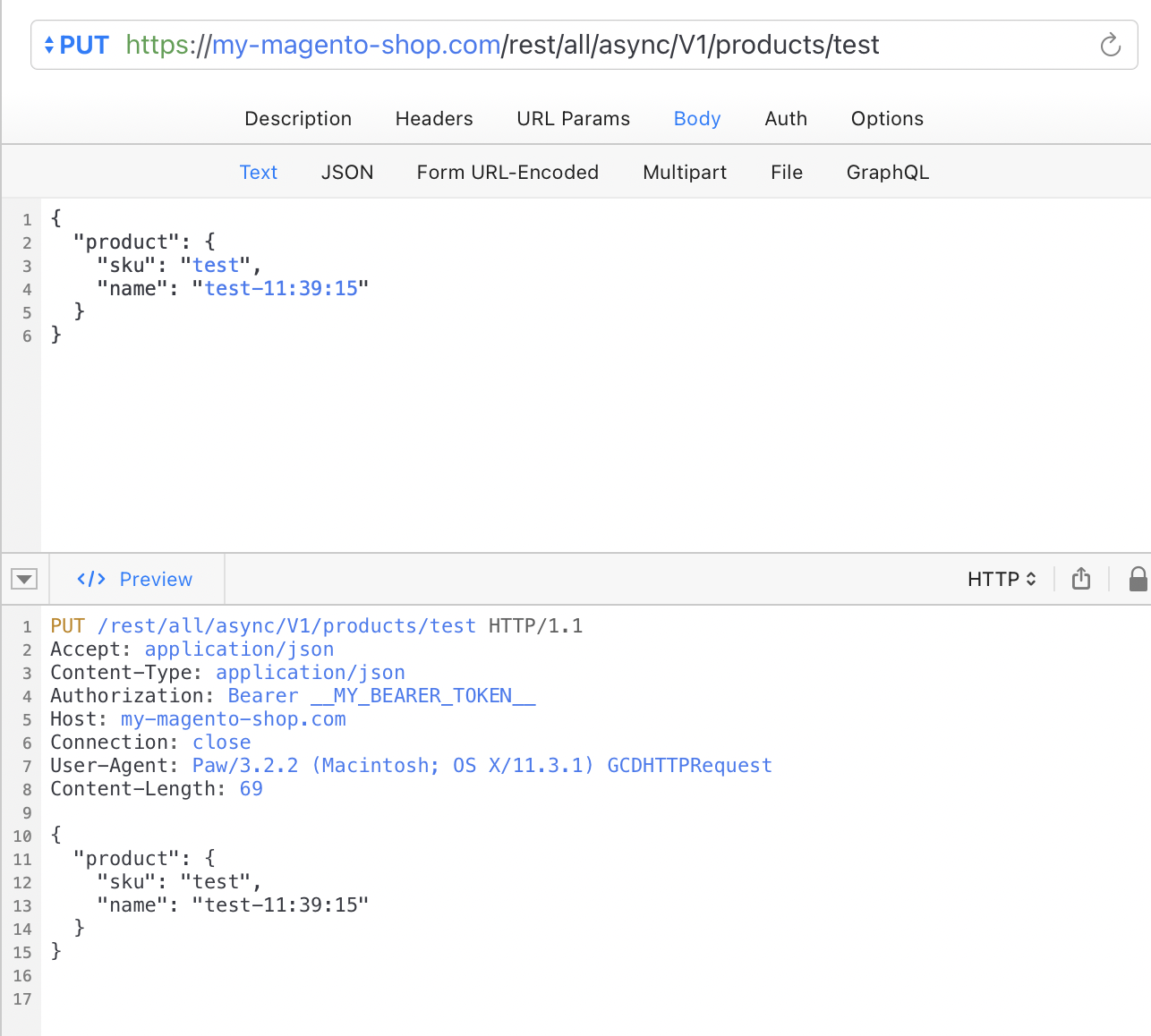
You can verify if the message arrived to the queue using RabbitMQ Admin (in the Queues section)

2 - Rename multiple products using async Bulk API #
Based on catalogProductRepositoryV1 add /async/bulk path before /V1 in the API call.
API Endpoint (note: we are not using SKUs in this URL)
https://my-magento-shop.com/rest/all/async/bulk/V1/products
Example JSON Payload:
[
{
"product": {
"sku": "test",
"name": "test-11:44:44"
}
},
{
"product": {
"sku": "16-test1",
"name": "16-test1-11:44:44"
}
}
]
Example cURL call (with added /async path)
curl -X PUT \
-H "accept: application/json" \
-H "Content-Type: application/json" \
-H "Authorization: Bearer __MY_BEARER_TOKEN__" \
-d "[{ \"product\": { \"sku\": \"test\", \"name\": \"test-11:44:44\" }},{ \"product\": { \"sku\": \"16-test1\", \"name\": \"16-test1-11:44:44\" }}]" \
"https://my-magento-shop.com/rest/all/async/bulk/V1/products"
Post the request using Paw or Postman
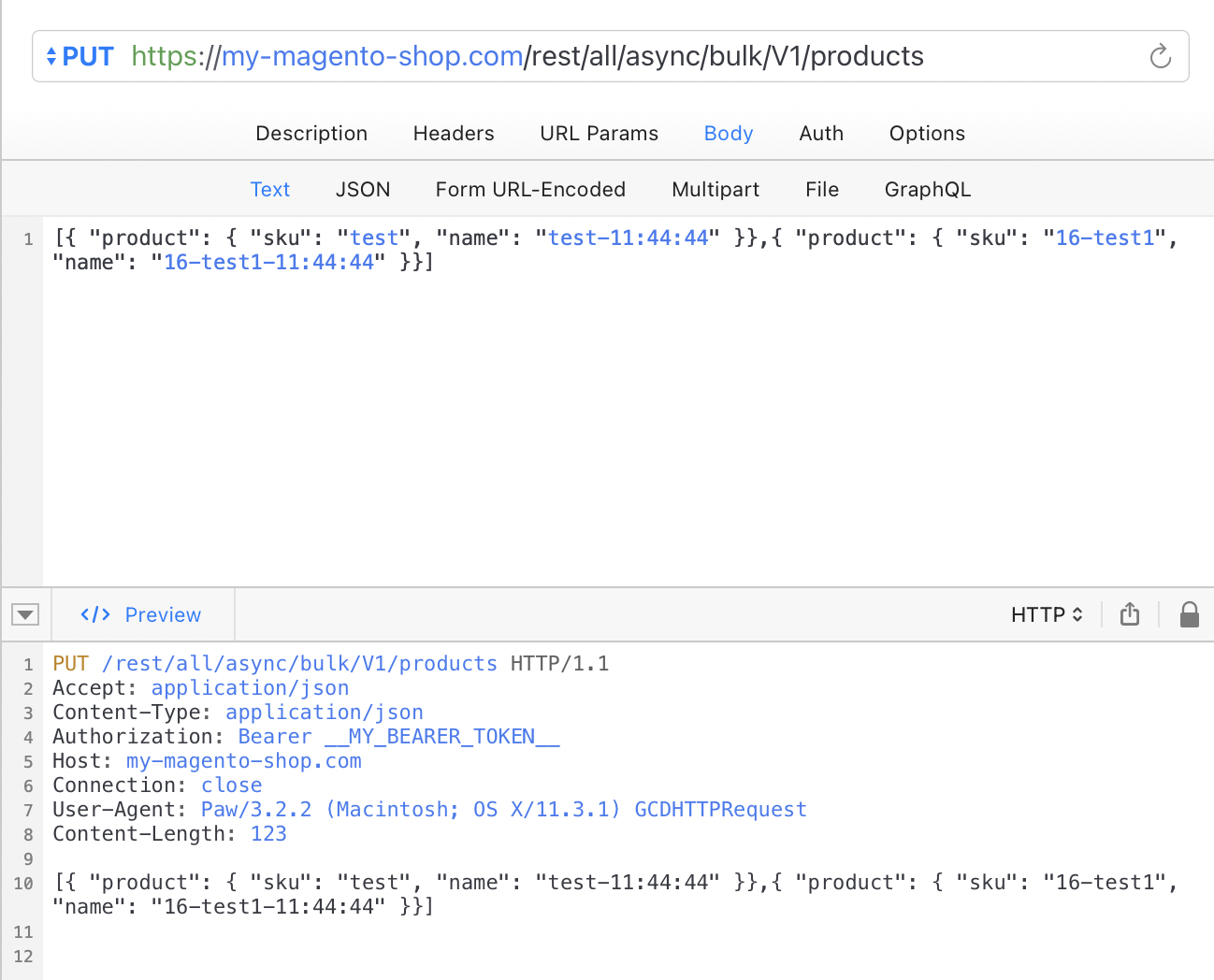
Response (it is important because it contains the Bulk UUID)
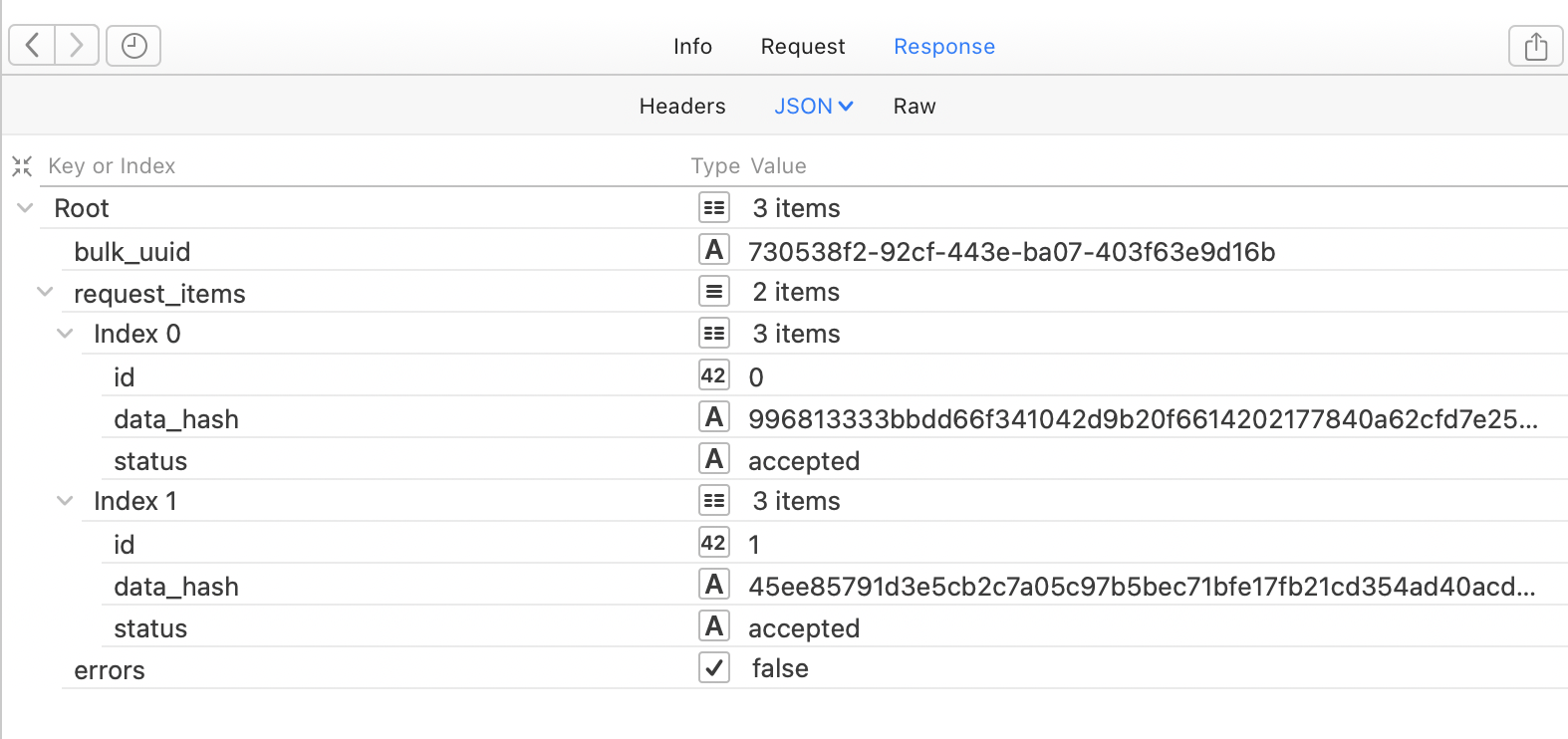
Check the update in RabbitMQ Admin (Queues)

Alternatively, you can view the messages in the RabbitMQ Admin (Queues → Get messages)
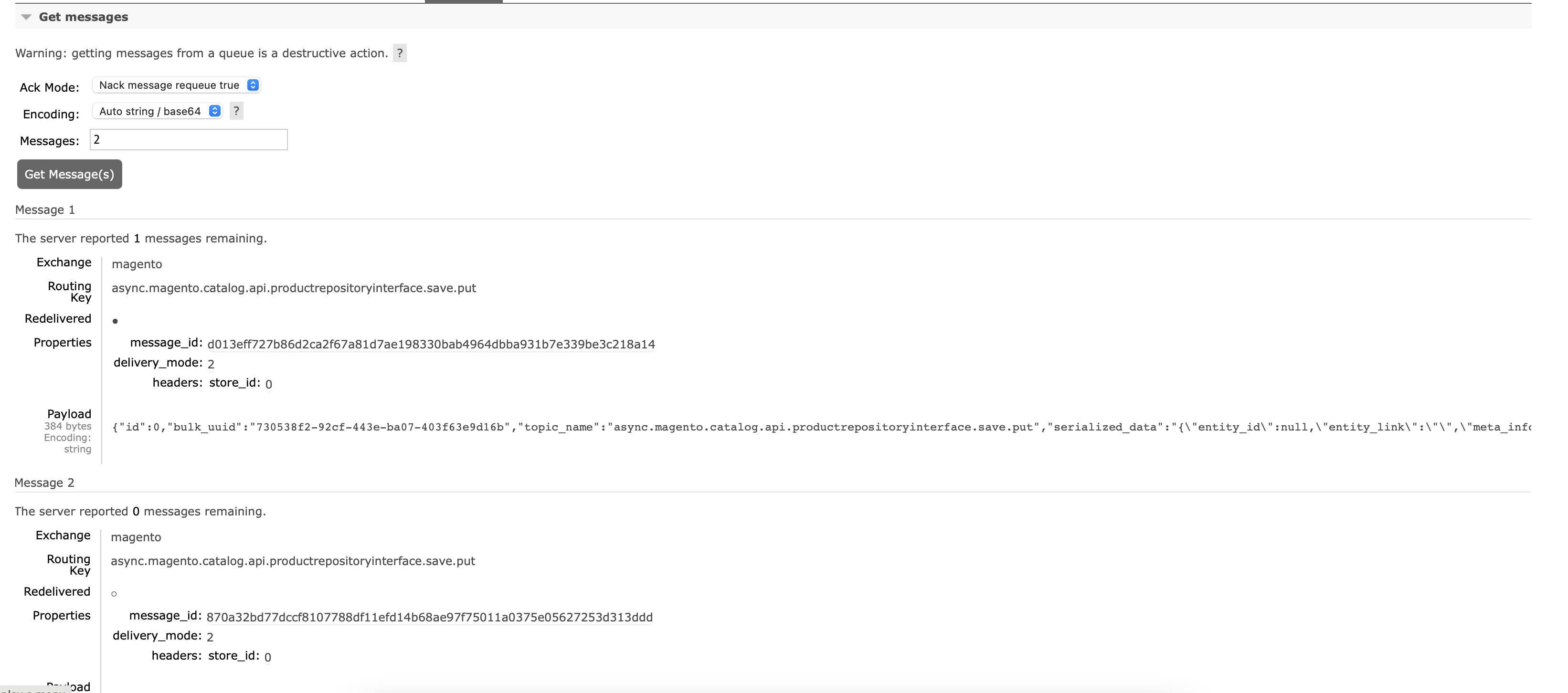
3 - Check the Bulk update status using Magento API #
We will use the BulkUuid from our previous request’s response:
730538f2-92cf-443e-ba07-403f63e9d16b
Using Magento /V1/bulk/{bulkUuid}/status endpoint
Example cURL call
curl -X GET \
-H "accept: application/json" \
-H "Authorization: Bearer __MY_BEARER_TOKEN__" \
"https://my-magento-shop.com/rest/all/V1/bulk/730538f2-92cf-443e-ba07-403f63e9d16b/status"
Response
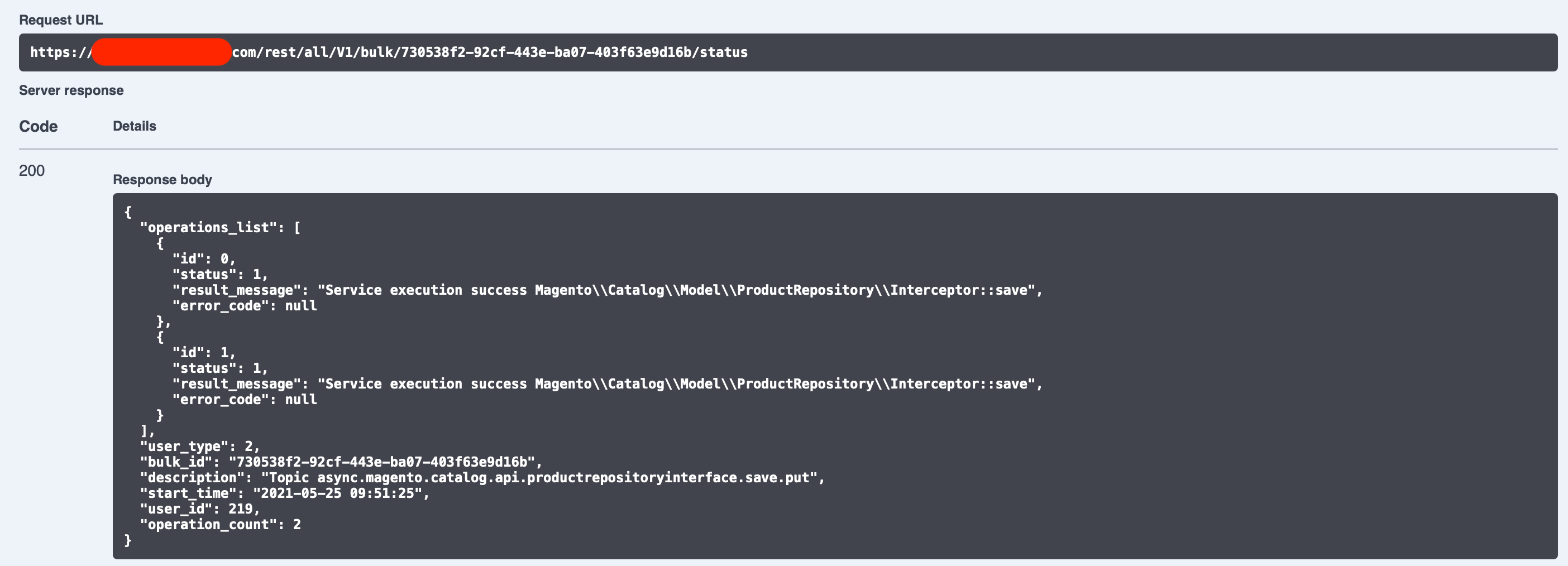
Check the status on the Magento Admin Dashboard #
Go to System → Action Logs → Bulk Actions
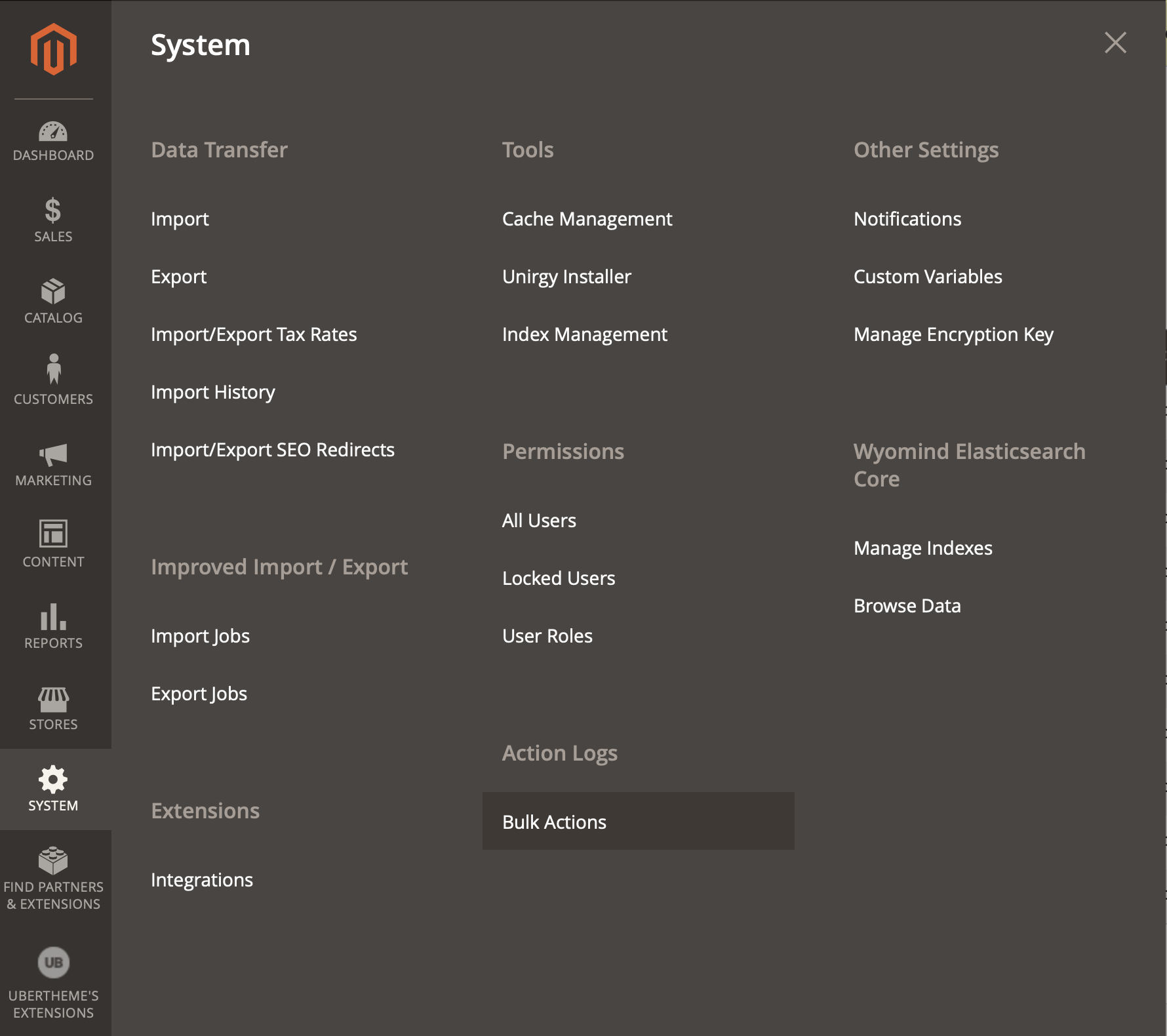
Select the action and click on Details.
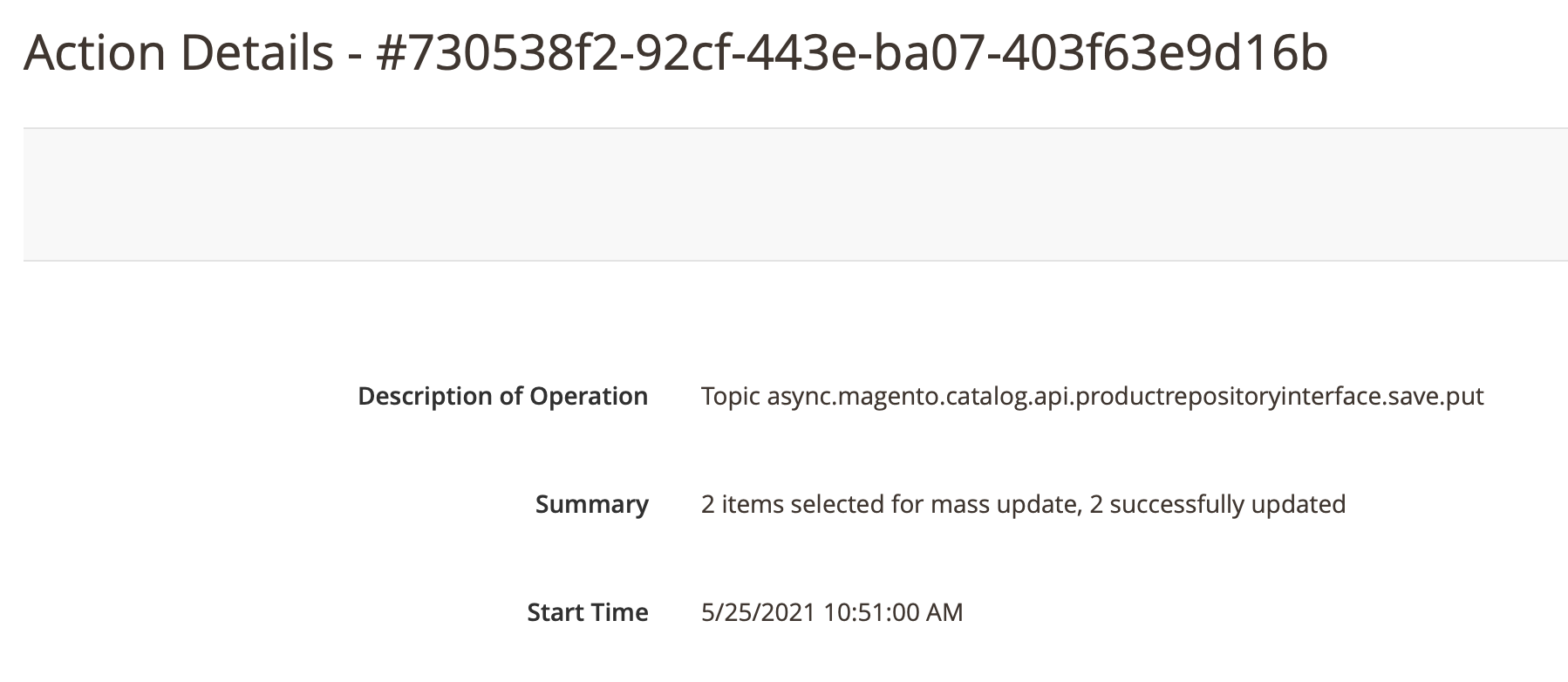
A super simple way to test RabbitMQ Authentication #
Requirements:
- python3
- pip3
pip3 install kombu
cat << "EOF" >> test.py
#!/usr/bin/env python3
import socket
from kombu import Connection
host = "localhost"
port = 5672
user = "magento"
password = "magento"
vhost = "/"
url = 'amqp://{0}:{1}@{2}:{3}/{4}'.format(user, password, host, port, vhost)
with Connection(url) as c:
try:
c.connect()
except socket.error:
raise ValueError("Received socket.error, "
"rabbitmq server probably isn't running")
except IOError:
raise ValueError("Received IOError, probably bad credentials")
else:
print("Credentials are valid")
EOF
chmod +x ./test.py
./test.py
Credits: Lorin Hochstein

